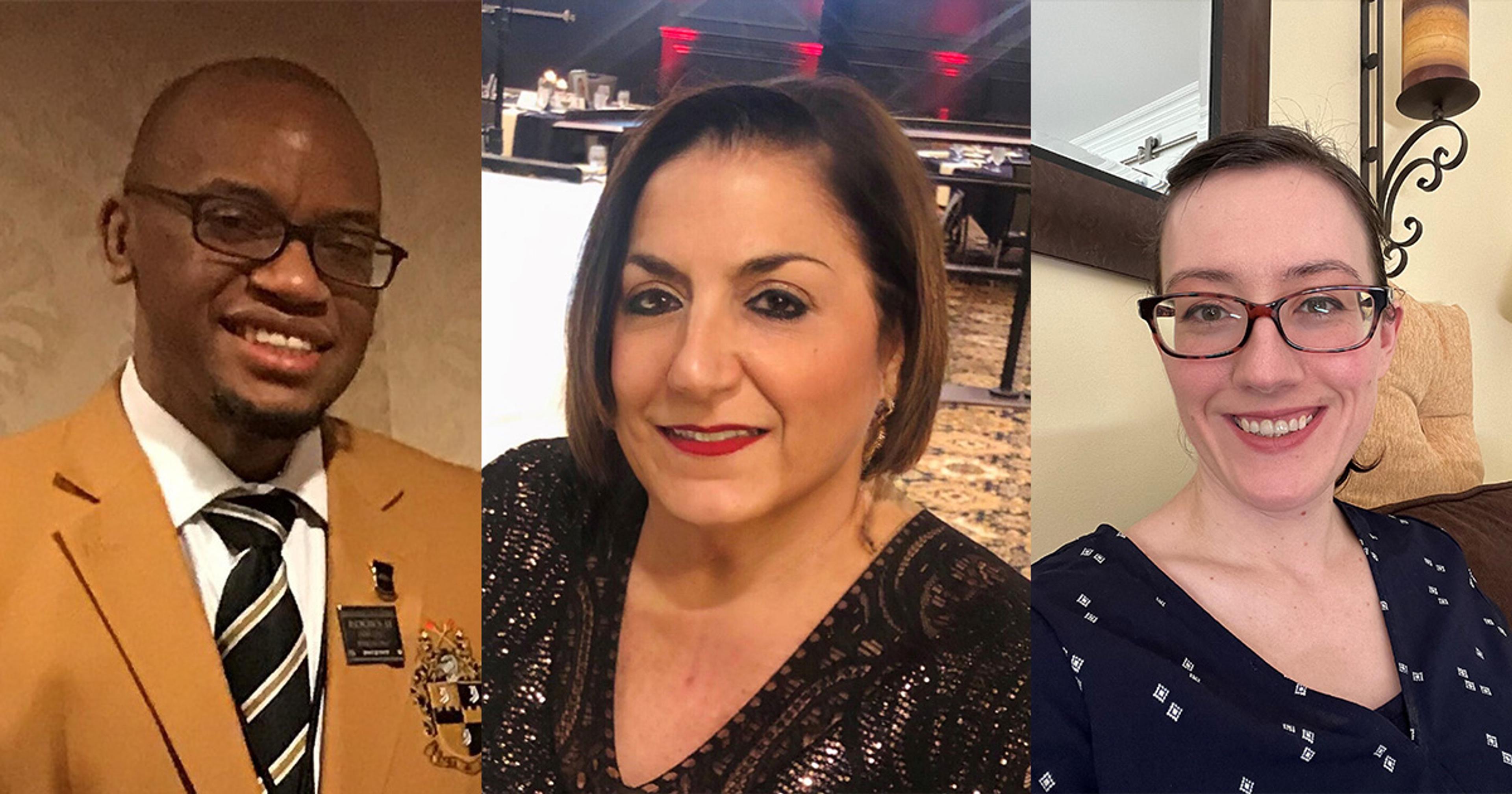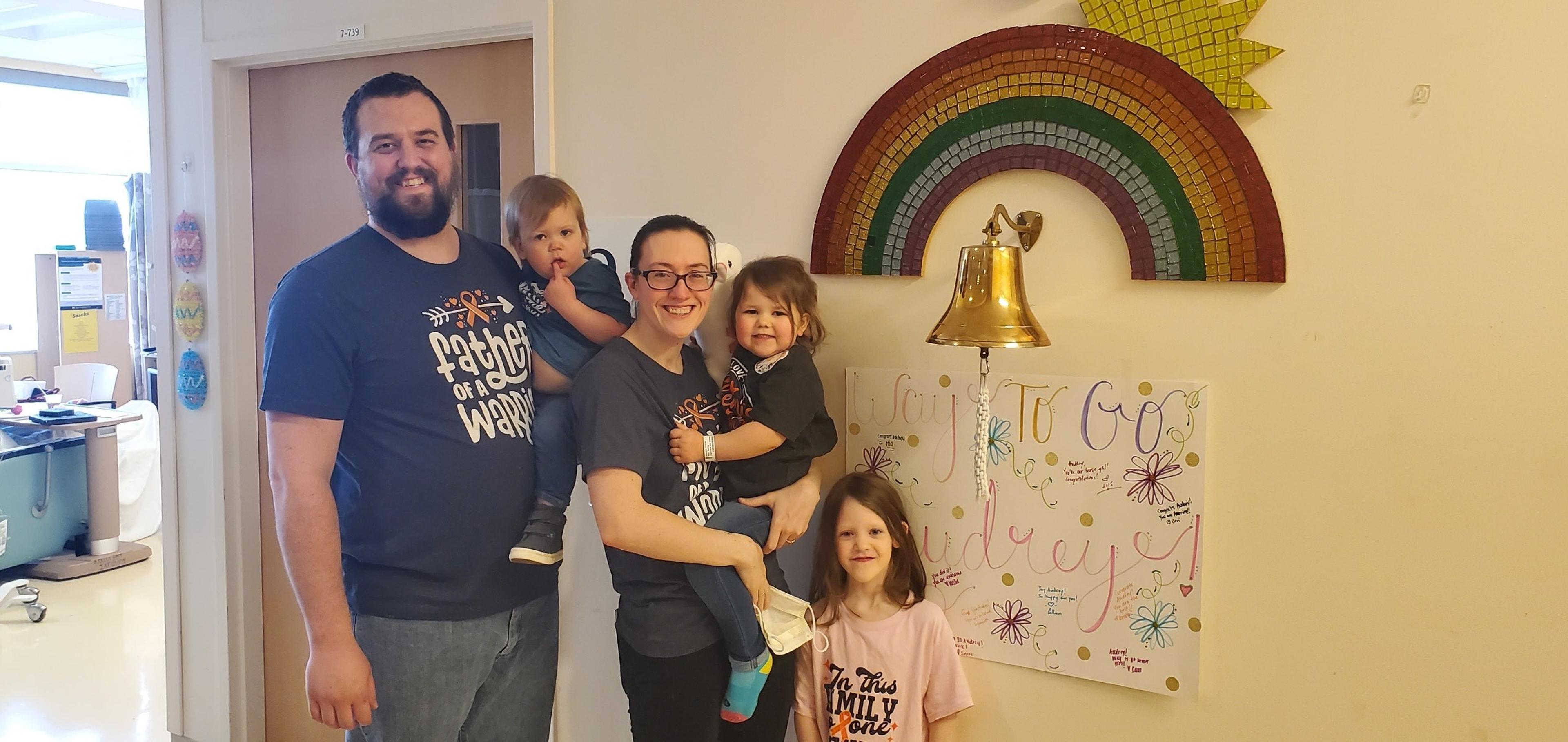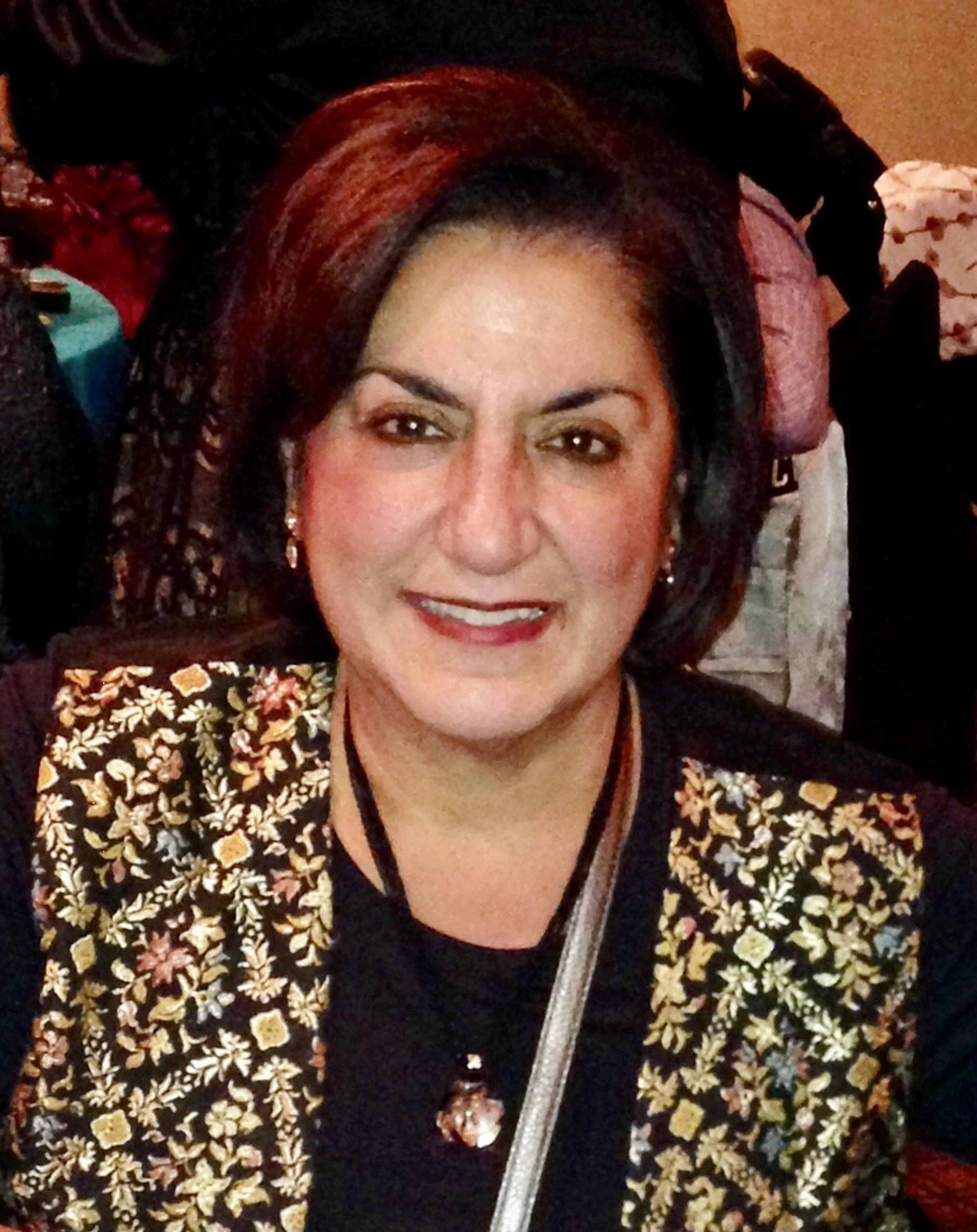Blood Cancer Awareness Month Has Personal Meaning for Blue Cross Employees
Amy Barczy
| 4 min read
Amy Barczy is a former brand journalist who authored...

Blood cancers include lymphoma, leukemia and myeloma, and they can affect anyone, at any age, at any time. Yet they are often overlooked when people think of cancer.
At Blue Cross Blue Shield of Michigan, Blood Cancer Awareness Month in September is deeply personal for many employees.
Advocating for children
Kerri Rayl, a lead financial analyst at Blue Cross, has worked to raise awareness and funds for the Leukemia and Lymphoma Society for two years after her daughter was diagnosed with B-cell Acute Lymphoblastic Leukemia at the age of 22 months. Her daughter is now four years old.

Blood cancers are difficult to diagnose and often the early signs are easy to miss. During the early days of her daughter’s illness when she was searching for a diagnosis, Rayl found listening to the stories of others on a similar journey helped her to advocate for her daughter.
“I want parents to be aware of the signs and help them fight for their child,” Rayl said. “This was a tough journey and I learned so much about this cancer because of it. Now I want to help others and continue to help improve the treatments. I have heard many stories from other parents about how long it took for them to diagnose their child. They all had to push back for a better answer to make sure they were being heard.”
For children, treatment for leukemia often takes about two and a half years, with the goal of getting the cancer into remission within 30 days of treatment. However, that doesn’t mean the cancer is cured.
Rayl is passionate about advocating for additional funding for the cause, as many of the drugs used for cancer treatment on children were developed for treatment in adults, and were approved several decades ago.
“Our children deserve better, and organizations like the Leukemia and Lymphoma Society are working to not only help raise funds for research, but help families after treatment have ended,” Rayl said. “Without the help of others, these families may never get that.”
Raising funds for treatments
Vera Grigorian, director of employee and labor relations at Blue Cross, has been involved in volunteering with the Leukemia and Lymphoma Society (LLS) since 2015, when a colleague and board member invited her to help assist in a campaign. After carefully researching the organization, she decided to become an active volunteer – and has personally organized fundraisers almost every year since.
“Any type of cancer awareness is very important to help ensure that the disease is diagnosed and treated in the early stages so that there will be a higher probability for recovery,” Grigorian said. “I believe that blood cancers are understated diseases. Leukemia used to be the number one cancer taking the lives of children under 20. Because of the progress that has been made, it is no longer number one but there is a long way to go to stamp out cancer in general.”

One of her more recent fundraisers involved a 200-person event in May with a casino theme, where donors played for prizes that were raffled off – with all funds raised going to the LLS.
“If you demonstrate passion for your organization and cause and have key facts that support your passion, people will generously provide support,” Grigorian said. “From 2017 to present, 75% of all blood cancer treatments were funded by LLS and those treatments are being used to treat other forms of cancer such as brain, breast, kidney, liver, lung, melanoma, ovarian, pancreatic and prostate cancers as well as lupus and multiple sclerosis.”
Advocating for bone marrow donors
Brian Williams, a lead technology specialist in human performance at Blue Cross, was diagnosed with acute myeloid leukemia eight years ago in the winter of 2015. He had been feeling exhausted nearly all the time and had frequent aches and pains. A blood test revealed Williams had bigger issues – and after consulting with an oncologist, he was quickly admitted to the hospital for a month.
After three rounds of chemotherapy, Williams found a match on the National Marrow Donor Program and received a stem cell transplant in March 2016.
The cancer journey has turned Williams into an advocate for bone marrow donation. He had joined the National Bone Marrow Registry more than a decade ago, but the first time he matched through the program – he matched himself.
Williams has led bone marrow registry drives, helped to fundraise more than $32,000 for leukemia research through the Leukemia and Lymphoma Society and continues to share his story of successful treatment.
“For a lot of people going through this – that’s one of the most helpful things: hearing positive stories about people going through cancer treatment,” Williams said. “I know for stem cell donation, it’s not a complicated process. In most cases, it’s just like donating blood.”
Learn more about Blood Cancer Awareness Month here.
Photo credits: All courtesy of Kerri Rayl, Vera Grigorian and Brian Williams.





